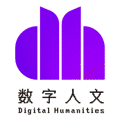Hands-On Reading: An Experiment in Slow Digital Reading
作者:Aditi Nafde, Newcastle University
Matt Coneys Wainwright, Newcastle University
Kate Court, Newcastle University
Fiona Galston, Newcastle University
James Cummings , Newcastle University
Tiago Sousa Garcia , Newcastle University
转载来源:Digital Humanities Quarterly, 2021, Volume 15 Number 2, http://digitalhumanities.org/dhq/vol/15/2/000558/000558.html
本文提供了动手阅读(https://hands-on-reading.atnu.ncl.ac.uk/login)的开发案例研究,这是一个网络应用程序,探索数字阅读和写作之间的相互联系。这款应用程序是英国AHRC资助的“Manuscripts after Print c.1450-1550: Producing and Reading Books during Technological Change”项目的一部分,该项目于2019年2月至2020年7月期间在纽卡斯尔大学进行。它最初的设计是为了让该项目能够提出两个关键问题:为什么手写在数字时代具有持久的相关性;一种更亲历亲为的阅读方式能让人们更深入地阅读电子文本吗?然而,正如本文所展示的,这个应用程序的创建和测试也提出了一些概念问题和与DH社区更广泛相关的技术挑战,特别是关于阅读和写作实践是否可以翻译到数字世界的问题。
作者简介:
Aditi Nafde
Aditi Nafde is Senior Lecturer in Medieval Literature for the School of English Literature, Language, and Linguistics at Newcastle University. She is PI of the AHRC-funded project “Manuscripts after Print c.1450-1550: Producing and Reading Books during Technological Change.” She is a book historian and her research examines the endurance and adaptability of handwriting in response to technological change.
Matt Coneys Wainwright
Matt Coneys Wainwright teaches at the University of Oxford and the Warburg Institute. Between 2019 and 2020 he was Postdoctoral Research Associate on the AHRC-funded project “Manuscripts after Print c.1450-1550: Producing and Reading Books during Technological Change” (PI: Dr Aditi Nafde, Newcastle University). His research deals with the writing and reading cultures of Renaissance Italy, the history of the book between manuscript and print, and late medieval and early modern pilgrimage
Kate Court
Kate Court is Research Software Engineer who originally trained in the Arts before completing an MSc in Computer Science at Newcastle University in 2018. She now works as a full stack web developer with researchers across the university. Kate has worked on the ATNU project for two years.
Fiona Galston
Fiona Galston is a Research Software Engineer at Newcastle University. She joined the team in April 2019 after working in industry as a software developer. Fiona has worked on a variety of projects for Animating Text Newcastle University and the Alan Turing Institute. She specialises in web development and contributes largely to the user interface for the Hands-on Reading application.
James Cummings
James Cummings is the Senior Lecturer in Late-Medieval English Literature and Digital Humanities for the School of English Literature, Language, and Linguistics at Newcastle University. He studies the use of digital technology for editing and also the surviving records of late-medieval drama. In Digital Humanities he is most known for being an elected member (2005-2019) of the Text Encoding Initiative Consortium’s Technical Council, and was previously its chair. He has since been elected to the TEI Board of Directors. One of his research interests is the Record of Early English Drama project and especially its shift to digital technologies. James is interested in text encoding. meta-schemas, and emergent technology for the editing, publication, interrogation of digital editions. He was the founder of Digital Humanities at Oxford Summer School and DH Awards.
Tiago Sousa Garcia
Tiago Sousa Garcia is an early modernist and digital humanist, and the Research Associate for Animating Texts Newcastle University (ATNU) since 2017. His early modern research focuses on literary translations from the vernacular into English, with particular emphasis in the period of the English Civil War, Interregnum, and Restoration. His digital humanities research centres around textual encoding, digital scholarly editing, textual analysis, and the uses of AI for literary research. He has taught several workshops on TEI and programmatic approaches to humanities’ research, is co-managing editor of the Journal of the Text Encoding Initiative (jTEI), and has published on the relationship between literary translation and the contemporary political context, in particular with reference to Sir Richard Fanshawe’s translation of Os Lusíadas, by the Portuguese poet Luís de Camões.
